#the pragmatic idealist burdened with both responsibility and hope
Explore tagged Tumblr posts
Text
Characters who need to make themselves believe the ends justify the means. Forcing it down their throat, again and again and again. Till its second nature, till its addiction. And maybe the ends don't feel so pressing anymore, cus who knew the means could be so good.
#the pragmatic idealist burdened with both responsibility and hope#who lets their morals corrode over each compromise desperately reinforcing them with more and more questionable promises they cant keep#till they wear a crown of Machiavellianism set heavy like a gravestone#and when they finally let themselves indulge in the hedonism of the delusion#its not bitter like they expected#the Stockholm syndrome from their hand crafted cage long since set in#it feels like freedom#mori ougai#geto suguru#im not sure if this makes any sense#but i love this type of character#who sees it clearer than anybody else does#and takes it on even though its not theirs to take#and laughably they get it fkn wrong#and it breaks them#so they just stew in the absurdity of all the vain sacrifices and all the ends they drowned trying to pursue#and they force themselves to love the burn in their legs as they tread water cus they know they arent trying to swim to shore anymore#not really
14 notes
·
View notes
Text
Bai Yu Reviews #3 : Take Us Home (龙城) - END
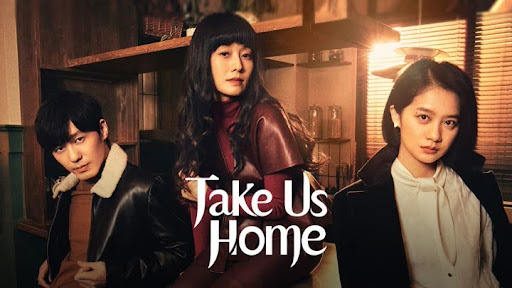
Full Review: 36/36 watched
What is it about?
Family trying to figure out their way in life despite the outside and inner troubles . More slice of life than a romance, although romance does appear. Heavy focus on family and obligation to family.
Bai Yu's role?
Main, middle brother Zheng Xijue
Is it worth watching?
Yes, but it's not for everyone. Gets heavy at times. Details and minor spoilers under the cut.
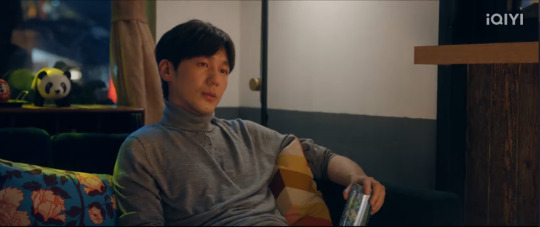
After the review of the first half of the show, I was ready to be disappointed further, and yet, to my great surprise, right after episode 18 the entire drama took off.
Things got progressively worse, especially when it comes to Dongni and her issues, but pretty much everyone from the main cast got a moment to shine and at least try to tackle their problems and hang ups, while the crisises kept on coming.
The focus on parenting, on the role and responsibility of a parent when it comes to a child (and the other way round), is definitely one of the strongest points Take Us Home makes, and discusses at length. Different models of parenthood, different approaches and effects it has on kids, are coordinated well with what was shown in the first part of the show.
Here, a scene from the last two episodes comes to mind, that is the talk between Dongni and Xuebi, regarding the degree to which a parent should sacrifice for their kids and how it affects said kids. The answer is particularly resonant in modern times - an unhappy parent is very likely to make their child unhappy too, despite their best intentions. No one can grow up sane while feeling they are a burden someone has to sacrifice for, day after day.
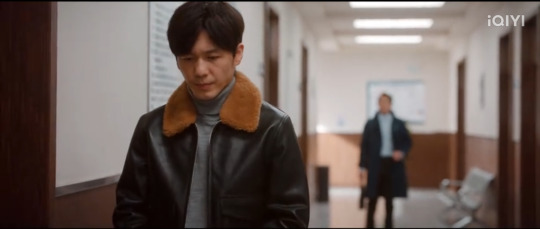
Zhao Zhao's plotline is probably the most painful one, but it leads to a very mature discussion of hope and the price for it - Zheng Xijue's idealistic belief in shielding people from truth just to sustain their hope and will to live, is constrasted with Doctor Chen's pragmatism and rather realistic belief that it's foolish to waste resources on lies that do not bring any real change.
There is also the prevailing question of - do you want to save her? Or just feel better about yourself because you tried?
This arc doesn't offer any easy answers, although it seems that the script sides more with Xijue here, considering the 'ghost talks' both Xijue and Doctor Chen have at some point, explaining their reasoning and feelings to those who are long gone.
Doctor Chen is an interesting character in his own right - from an idealist and true altruist he changed into a loner, unwilling or unable to let anyone close because of the hurt he suffered. Him and Zheng Xijue are natural foils for each other and each scene with them both present is a personal favourite of mine. Again - patterns that are repeated shape who the characters are, and it's requires them to work on themselves to overcome them. Some manage to, some don't.
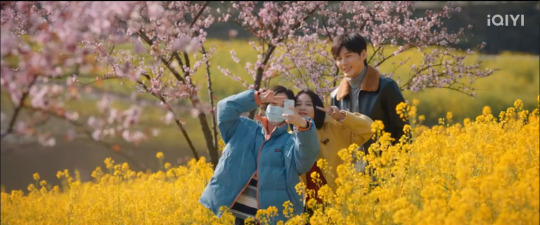
Although most of the attention, especially when it comes to the dramatic and hurtful events, is centred on Zheng Xijue and Dongni, Nanyin's plotline of growing into herself and her relationship is done very well too - it is a nice counterbalance to the stormy lives of her older siblings, but it's not naive or insignifcant. Nanyin, taking strength from the support and love she received from her family, is able to fight back against her in-laws and to decide for her own how her life and future will look like. In the sea of hard choices and inescapable misery, her arc is the shining, hopeful beacon, despite the troubles she faces.
And here is the main reason why this review is so positive while the previous one was less than: the balance. The second half finally shows us moments of respite, shows us the characters smiling, hanging out, having fun, without just the dire circumstances pushing them into each other. Of course, they are still supporting one another throughout all the bad luck, but the also have the time to finally just be.
Gone is also the feeling of stagnation - first things get much worse, the spiral changes into a head-dive, but it only makes watching the Zheng siblings crawl back up, one step at a time, all the more satisfying.
They actually have to put on some work to be better and I must say, it's a joy to see them put in the effort.
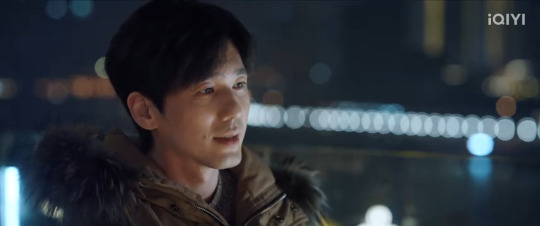
However.
The one who changes the least in the end, is Zheng Xijue. Instead of him learning to set some boundaries and learning to give some things and people up, it's his surroundings that come to a conclusion that he is perfect as he is and it's their job to learn how to accept him and support him in his self-sacrificial act, because they all profitted from his sacrifices and were able to be so happy exactly because he was there to be their stepping stone.
It might be a bit of a reach here, but I find it interesting that everyone is at their best when he stops being a person and starts being a concept - with Xijue in jail, his entire family adapts almost a religious 'Xijue wouldn't want you to do that, he wouldn't want you to suffer like that' approach, which benefits them ("Xijue already suffered for it, you can't waste it, so do what you want") but doesn't really address how much this state of things costs him.
Aunt Lin does say at some point that he was bound to blow up and hit someone because he got so used to bottling everything up, yet this idea doesn't come back. Even Jiang Yi, Zheng Xijue's girlfriend who from the very beginning had very good reasons to be unhappy with his choices, finally gets 'converted' into understanding that this is how it should be and that her role in life is to be there for him whenever his goodness breaks him up too much. Local Jesus spotted, everyone.
Joking aside - I am not certain whether the show wanted it that way, or if it's just my reading of it, but I believe that while the drama has a good ending overall, Zheng Xijue is the only character who actually loses in the end. He doesn't leave his pattern after all, he even gets it enforced and encouraged from the outside, and for me? That's a bad ending. I like those, so it's additional plus from me, but for those who find themselves in Xijue's circumstances and want to be inspired by watching how he overcomes them... Well, he doesn't.
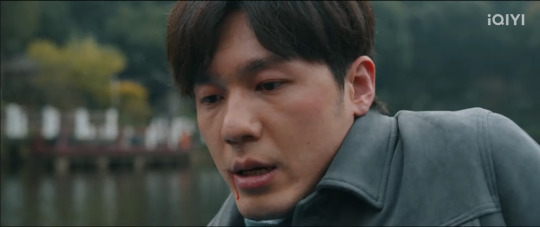
Who is it for? Definitely for those who like Bai Yu's acting, he does a marvellous job here, especially in the second part where he has something more to show than sad smiles and tears. This man can suffer, let me tell you that. For the lovers of slice of life, family dramas, flawed characters trying their best to become better, and for those who like to be reminded that no matter how hard the circumstances are, there is always hope for it to get better tomorrow.
Who it isn't for? People who don't like too much suffering, and those who don't enjoy their protagonists display toxic behaviour towards their loved ones. From what I gather, the drama also loses quite a lot of the content when it comes to Longcheng itself and the problems of industrialism that are present in the novels - they are only hinted at in the drama and don't lead anywhere. Also: it's definitely not for those who dislike characters being dramatic and irrational at times - while realistic, it can get sometimes frustrating, because how naive can you get???
Overall, I enjoyed it a lot, even cried a bit in the right moments, so personally, I do recommend it both to Bai Yu fans and to people who enjoy the topics this drama touches upon. It's very well-acted and beautifully shot, the ost also grows on you as you watch (although some songs get repeated so often that making a drinking game out of them would kill some livers)
7 notes
·
View notes
Note
you both seem so happy... never thought i'd see the ones of godhood having such a human mirth. ( for both of Storm Bros if you won't mind to indulge my trash gremlin side )

like life: stories. || @sonxflight || accepting

▬▬ι═══════ﺤ ⚡🌪️ || The proverbial inception of their beings were like big bangs; smoldering with the explosive embers, finding one another in the recreation amidst the destruction. It is a quiet love that ignited it, as their discipline materialized to properly measured forms, concern without bound impairs, for their immortal lives are just a series of events in insequential order. They had long have been haunted, plagued, and tempted by an âme damnée, an incubus, a fallen angel of sorts. Any incantation, purgation, or catharsis that could very well wipe off the Storm’s existence, threatening to cast them out of the realms.
They have been no fools, for such fools will eagerly bend in an obeisance of gratitude, not having known they have been all together insulted and deconsecrated. If such vulgarities could sound so wickedly pleasant, Fujin does not have to wonder what saccharine coaxing would do to common souls. Even the ascended immortals go through a state of decay and crumbled powerlessness in order to revivified in the most amaranthine strength and determined will. He still finds himself triaging his body and soul, as the fissured ravenous mouth of the gaping gash would swallow all the luminescent light and joy from his pristine heart. Nevertheless to say, the celestial tapestry of their shared residence had been compromised, as the whole sky would hemorrhage, as the void gorged on entire oceans of Jinsei and still leave the vessel flowing, with tar-like corruption of black rain scattering into a torrential downfall.

Raiden has also witnessed his own streaks of lightning convulse and scream and viciously explode. Crumbled, blackened and withered yellow petals scattered to the wind, and seed by seed as the writhing appendages would drop right to the edge of the endless fall as his conscience would be relinquished without the fragments of his splendor soul to reflect the stars.
Regardless of their demigod status, they are equipped with minds that are imaginative and idealistic, despite having created by the Elder Gods to be pragmatic and rational in their raison d'être. The rawness of humanity courses around the unearthly veins, flowing ichor, with hearts that understand perception and are able to communicate to the mind, without words said and if there are, they are able to dismiss and lead instead. Even when their lives may threatened to be ceased to be theirs wholly, they would always place more emphasis on the Earthrealm’s endeavors, much more than their own survivability and sustenance, lest the tyranny of the dominating forces of evil engulf them whole. For their lives will be ceased to be theirs, once they lose the responsible emphasis of dutiful protection to provide them the wisdom of peace.

“We have learned long ago that the best example we could serve is to love anyway, regardless of what the world may bestow both of us,” as long as shining magnanimity of ignited warmth emanates from Fujin’s boyish, charming countenance. Even when the humanity itself is at the risk of all-consuming vices, quickly blinding them in a suffocating opacity of greed, delusion of grandeur, wrath, revenge, seeking for perfection, etc.
The Wind God will embody all the sentiments that become shattered poetry wrapped in broken glass, continually bleeding and healing in the process of betterment. “I will always strive to strengthen the humanity’s sentiments by sharing my words of wisdom. That their flaws and imperfections are more than capable of serving as a catalytic fuel. My brother and I know this the best.”

Raiden also had witnessed so many fall into the abysmal void of abhorrent fate, as he would perceive every meaning of word even unuttered, through the beating of one’s heart, the pulse of his or her identity to inquisitively care even when it would make no sense to do so. even as his unsullied reputation seeking equilibrium and serenity of the realms’ balance as he would never let the Earthrealm be usurped, never again.
“Happiness may be an unclear prognosis, because my solemn burden of scrutinizing every matter that regards Earthrealm’s fate often becomes too overflowing, even causing the fissured barriers of my conscience itself. I suppose even in the foreshadowed looming darkness wrapping its tendrils around my distressed heart in spiked frustration, I will continue to resent and resist against the vicious cycle of repeated displacement and reset Hourglass of Time.”
For hope exists. Love exists. Light exists. They will find Raiden and Fujin again and again, or eventually they will find scattered hope, love, and light. Either way, their interlinked story is going to be filled with beautiful beginnings and fruitful endings. They just have to hold on a little longer. Wait for it. For happier days are coming. ▬▬ι═══════ﺤ ⚡🌪️ ||
#✗ obsessive cathartic (headcanon)#✗ unwavering wind of celestial might (fujin)#✗ the almighty might of lighted twister (raiden)#✗ can you touch the hurricane (raiden and fujin)#(relationships; samurai jack)#sonxflight
4 notes
·
View notes
Note
Dunno about the rest of the audience, but I want to keep these SLAL political jawns going...here's hoping this serves as a decent prompt for more. While you're more of a pragmatist than an idealist, do you think pragmatism is always preferable to idealism? To give a concrete scenario, wouldn't a pragmatic response in 1776 to the most famous statements in the US declaration of independence be "LOL, grow up and get real Ocasio-Cortez...I mean, Jefferson and Franklin, have you read a history book?"
You have touched on an incredibly worthwhile point. Idealism and pragmatism, in my mind, inform each other and are necessary. Goals should be set, principles identified, articulated, and worked towards. Humorously, the reason for this is both idealistic and pragmatic in itself. Idealistically, having a foundation and explanation of them helps set the aim of policy, and pragmatically, this can win over people and establish a clear set of checks and balances to win over those who might not believe or trust you.
My primary concern with idealism has to do with policy failure. Too many idealists have policy ideas that are completely unworkable, and the failure will cause great problems, and the idea that “well it’s a principled thing to do” falls flat when the response is “people don’t survive on intent.” It doesn’t matter if the policy made you feel fulfilled if it does nothing or makes everything worse, I’d argue that’s entirely selfish reasoning, elevating the need for personal satisfaction over the welfare of others, a classic hallmark of dictators who drink Dom Pérignon while their citizens starve.
So when we look at the Founding Fathers, what elevates them in my book over other individuals like Ocasio-Cortez is the breadth of their study, their discussions, and their serious considerations of what the potential failings were and the drawbacks of them even when implemented, as opposed to saying what people want to hear regardless of how its implemented and any pitfalls that may occur, beating a tribalistic drum to shout out its detractors. In their documents and discussions there were serious talks about why the Roman Republic failed, considerations of philosophy, and more than a few heated discussions. And if we’re being honest, in many ways the American experiment had experienced failures and continues to do so well into the present, I see no reason to say that it’s sacred and perfect even as I love the idealistic concept of it. And in that sense, that’s a burden passed down to the citizens of participatory democracy, to identify failures and develop workable solutions to address them, as well as to adapt older successes to continue their success or to improve their function thanks to changing times. In a way, that sucks: “Welcome to America, here’s your homework.” Pragmatically though, the alternatives are much worse, putting trust in leaders with power has historically speaking, been a disaster whose toll is measured in millions of human lives and cradle-to-grave suffering. Eternal vigilance is the price of freedom, but vigilance isn’t a passive action. And it conflicts with another ideal of freedom of action which includes the freedom not to do something if you don’t want to. In that sense, I don’t think that’s a flaw so much as a cost of doing business, you have this freedom of action and you have this participatory government, it’s up to you to exercise them on personal judgment.
Because pragmatically speaking, letting others make that judgment for you hasn’t worked out well for the ones giving them that power.
Thanks for the question, TBH.
SomethingLikeALawyer, Hand of the King
12 notes
·
View notes